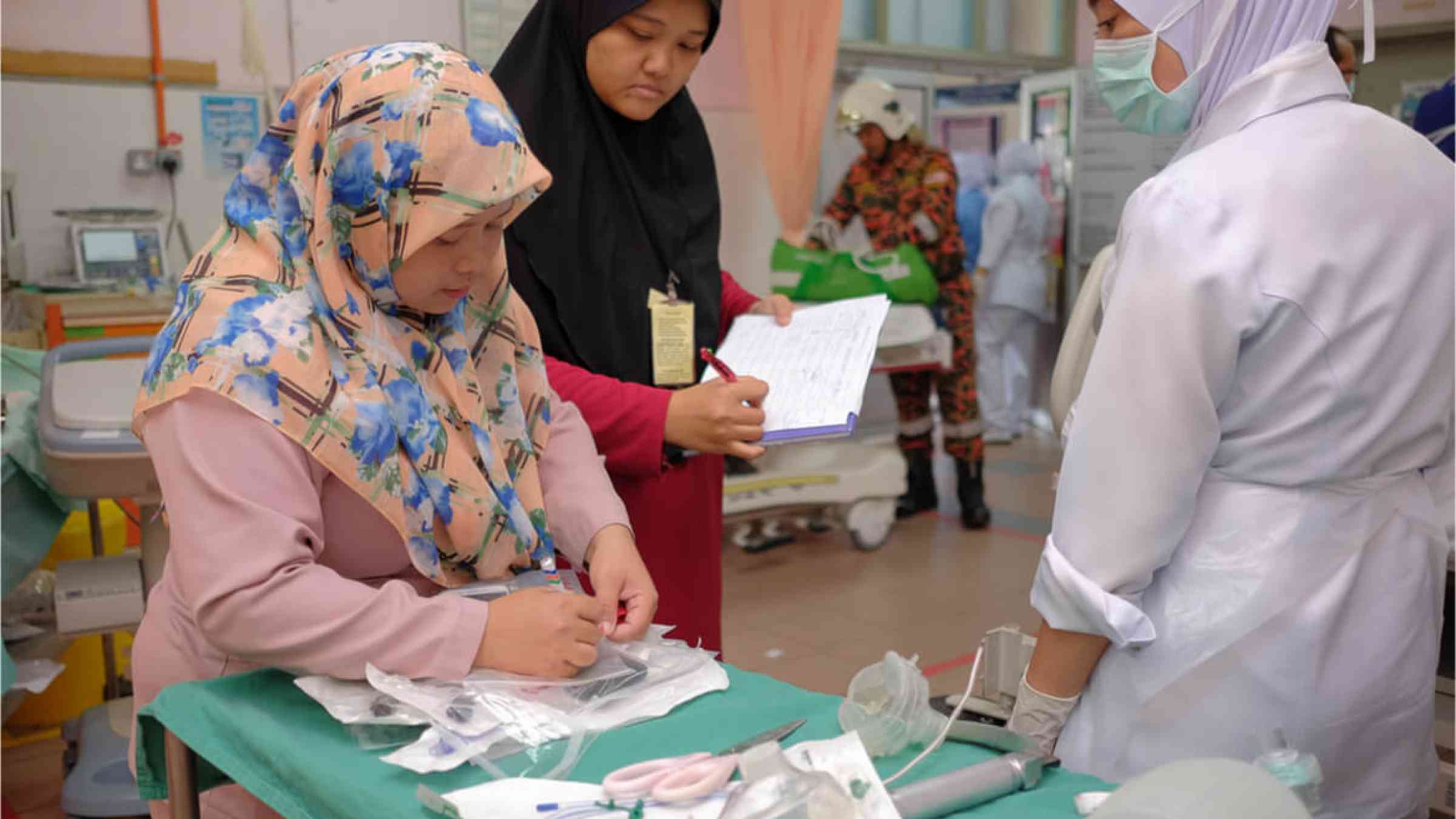WRC5 Technical Session: Addressing the Recovery Needs of Women and Girls, People with Disabilities and Other Vulnerable Groups
Watch this session on-demand
The session will highlight the current state-trend toward the exclusion of women as key actors in critical decisions regarding economic recovery in post-conflict, disaster prone settings, especially as it pertains to the COVID-19 pandemic. While women, including young women, are increasingly participating in peace and security processes, this largely precludes participation in disaster risk reduction, recovery and governance efforts, which are important to improving women’s livelihoods and empowerment, but also to preventing future disasters and conflict. To effectively implement post-conflict recovery measures in high climate and disaster risk areas, it is imperative to create, maintain and sustain gender-responsive and inclusive policy, programming and financing efforts, with an effort to scale up the outreach to various excluded groups at large, such as persons with disabilities, ethnic minorities, indigenous persons, and LGBTQI+ communities.
The session will focus on the experiences of young women peacebuilders, the LBTQI+ community, local women leaders in disaster resilience, and leaders from persons with disabilities organizations impacted by the COVID-19 pandemic to share their asks and lessons for a risk—informed, sustainable and equitable recovery for all.
Session objectives
The objective of the session is to discuss and advocate for the greater inclusion of women of all ages and backgrounds in meaningful socioeconomic recovery efforts in high disaster and climate risk areas, especially as they pertain to the COVID-19 pandemic and post-conflict settings. As such, the session will distinctly situate women of all backgrounds as key actors in these processes, rather than a group of persons simply acting as beneficiaries in these efforts.
Moderator
- Ms. Rahel Steinbach, Disaster Risk Reduction and Resilience Programme Specialist, UN Women
Speakers
- Honorable State Minister of the Ministry of Disaster Management and Relief, Dr. Md. Enamur Rahman, Bangladesh
- Ms. Nisreen Elsaim, Chair of UN Secretary General's Youth Advisory Group on Climate Change, and the Chair of Sudan Youth Organization on Climate Change, Sudan
- Ms. Sharon Bhagwan-Rolls, Chair for the Shifting the Power coalition, the Chair of the Global Fund for Women Board and the Chair for the Global Partnership for the Prevention of Armed Conflict and Board Member of the Women’s Resilience to Disasters Programme, Fiji
- Ms. Risnawati Utami, Founder/Senior Disability Rights Adviser, OHANA Indonesia
Learn more
Where do we stand
As we head into the third year since the World Health Organization (WHO) declared COVID-19 a global pandemic, it is clear that the pandemic has had severe and long-lasting effects, especially as they relate to women and young women’s socioeconomic well-being. These effects, in addition to compounding disaster, climate and fragility risks, especially undermine the Sustainable Development Goals 5, 13 and 16. Lessons from the implementation of the Women, Peace and Security (WPS) agenda and joint UNICEF UN Women research on the gender dimensions of risk showed that, while women are the backbone of their communities and respective economies during disasters, crises and conflicts, they are often excluded from larger scale decision-making when it comes to risk-informed recovery, post-conflict planning and budget distribution.
The Global COVID Gender Response Tracker developed by UN Women and UNDP in 2020, has found that, while women have been at the center of global COVID-19 response efforts, they have been significantly underrepresented in meaningfully participating in key COVID-19 decision-making and governance worldwide. Women’s exclusion from COVID-19 planning and decision-making leaves governments ill-equipped to respond effectively to the gendered social and economic fallout of the pandemic.
Women’s exclusion is exacerbated by widespread violence. As much of life has moved into the online space during the pandemic, women leaders, peacebuilders, environmental and human rights defenders are under attack from physical threats and intimidation, as well as digital attacks. COVID-19 is quickly escalating to become a driver of conflict, which has a disproportionate impact on women and girls.
Dwindling economic resources have disrupted the work of many women’s rights organization and civil society groups who work to lead recovery conflict prevention, peacebuilding and recovery efforts.
Session guiding questions
- highlight the specificity and diversity of women's experiences during the pandemic, and the unique resources and capacities they have for contributing to rebuilding in countries emerging from disasters and crises,
- address challenges to women's inclusion in recovery and development processes, and showcase the value of participation of women of different backgrounds and experiences in efforts to rebuild equal, sustainable and peaceful societies,
- identify existing and potential entry points and opportunities for UN, IFIs, international and civil society actors.

Agenda
Location
BICC Ground Floor
Online access
Participation
Open to those registered for the conferenceInterpretation
EN, FR, ESDetails
Contact
Rahel Steinbach rahel.steinbach@unwomen.org; Christina Holland christina.holland@unwomen.org; Rita Missal rita.missal@undp.org; Ayaz Parvez aparvez@worldbank.org